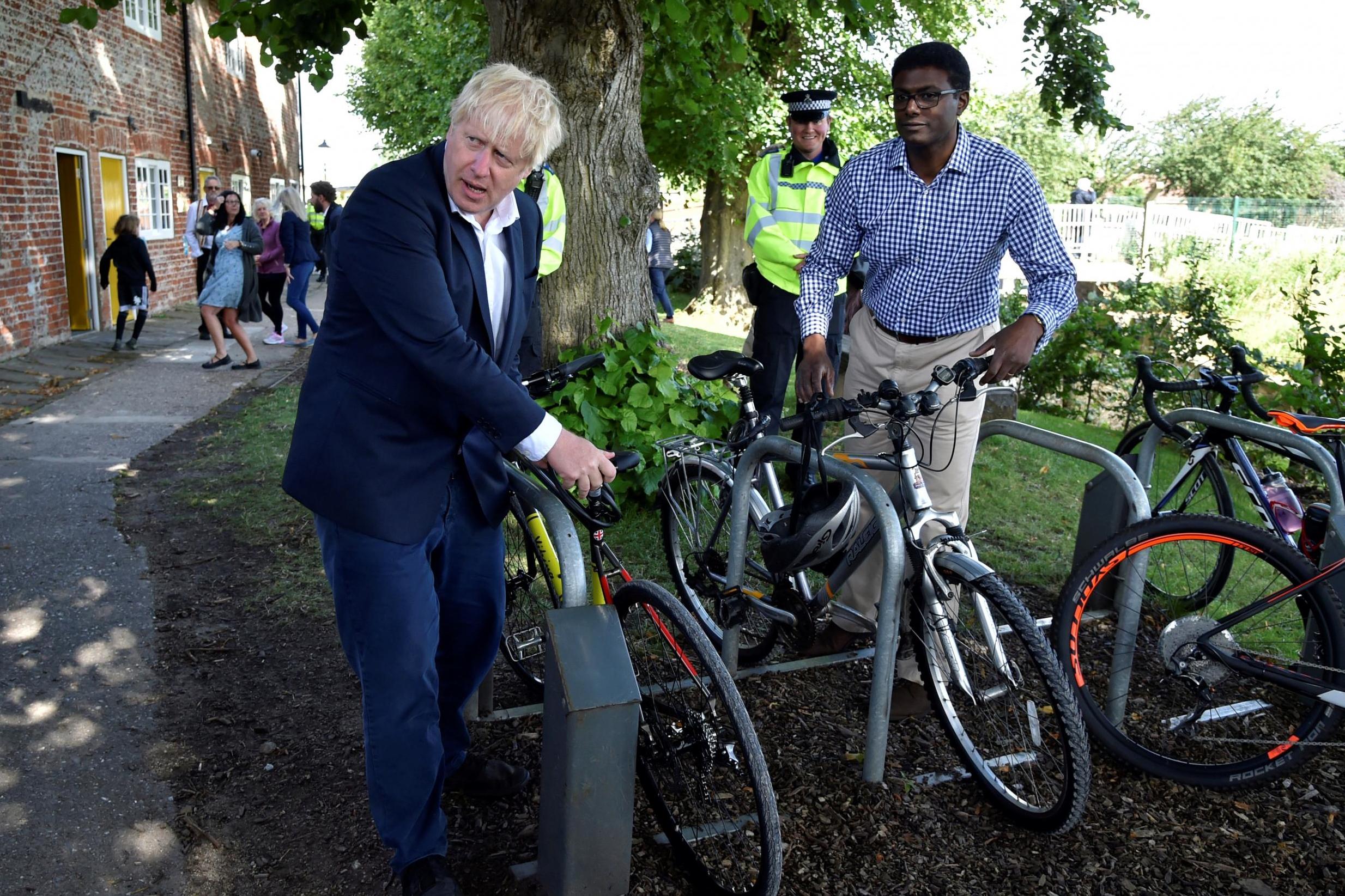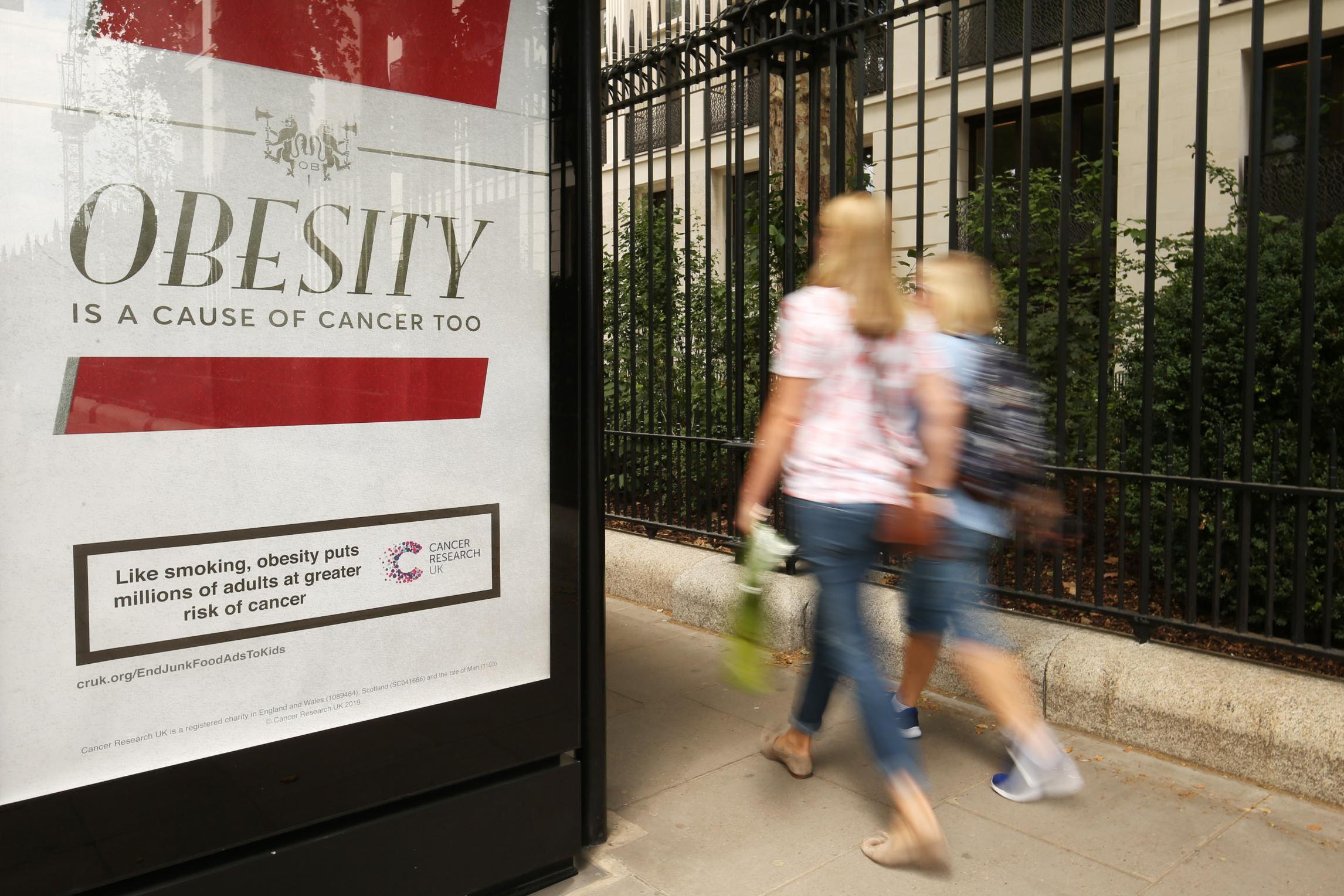Why the government’s new obesity plan won’t work for everyone
Yes, a comprehensive scheme is long overdue, but No 10’s one-size-fits-all approach falls short of what is required to tackle the problem, say Lucie Nield and Jenny Paxman

Your support helps us to tell the story
From reproductive rights to climate change to Big Tech, The Independent is on the ground when the story is developing. Whether it's investigating the financials of Elon Musk's pro-Trump PAC or producing our latest documentary, 'The A Word', which shines a light on the American women fighting for reproductive rights, we know how important it is to parse out the facts from the messaging.
At such a critical moment in US history, we need reporters on the ground. Your donation allows us to keep sending journalists to speak to both sides of the story.
The Independent is trusted by Americans across the entire political spectrum. And unlike many other quality news outlets, we choose not to lock Americans out of our reporting and analysis with paywalls. We believe quality journalism should be available to everyone, paid for by those who can afford it.
Your support makes all the difference.Covid-19 has affected a disproportionate number of people with obesity in the UK. As such, the government has seen the pandemic as a “wakeup call” to the health risks of living with obesity. They have recently announced a long overdue strategy to tackle obesity in Britain.
Some of the proposals aimed at significantly reducing obesity rates, include:
– Banning TV and online advertising of foods high in fat, sugar, or salt before 9pm
– Calorie labelling on menus in restaurants and takeaways, alongside consulting on alcohol calorie labelling and front-of-pack “traffic light” labelling – where “green” products are considered more nutritious, and “red” products less
– Expansion of the NHS’s weight management service (including apps and online tools)
– Incentives for GPs to support patients with obesity in their weight loss, and prescribe exercise and social activities.
However, the proposals are not without criticism, and some feel the government’s plans aren’t enough to end obesity. And though many of the proposed interventions are thoroughly researched, not all methods will be effective for everyone. Here are four key problems with the strategy.
1) It doesn’t target every driver of obesity
Multiple factors combine to influence body weight. Our psychology and biology, and what motivates us to eat or be physically active, all interrelate with societal-level food supply, social influence (such as food marketing), and our physical activity environment (such as how walkable and connected a community is, and how much recreational space it has available).
One of the government’s biggest targets is to promote increased physical activity among the population. This includes investment into active transport infrastructure to increase physical activity, and incentives for GPs to prescribe exercise or other social activities.

Research shows physical activity is higher in neighbourhoods with more parks and public transport and steps to promote more physical activity should be applauded. But they don’t fully recognise the complexity of obesity.
Not everyone will want, choose, or be motivated to be active in the same way as others. Support in changing behaviour, and making access to many types of physical activity affordable will be key to getting the nation moving.
2) Access to healthier foods is key
The government has also announced aims to promote healthy eating. Some of the strategies include banning junk food advertising on TV before 9pm and ending offers on unhealthy foods.
However, not all these strategies have been shown to work. Government research in 2019 even calculated a pre-watershed junk food advert ban would only reduce the average daily calorie intake by about 1.7 calories. Instead, improving access to healthier, affordable foods will be extremely important for bringing wider change.

Increasing offers on fruits and vegetables, and ending “buy-one-get-one-free” offers on unhealthy foods in stores are likely to help. However, the continued prevalence of fast food outlets in some areas, particularly deprived ones, may continue to undermine access to healthier alternatives for many people.
Research has shown that access to unhealthy food options, which tend to be cheaper and may be perceived as better tasting, increases intake of them. For this reason, reducing access to unhealthy food options and improving access to healthier options need to be considered together. Doing so will lead to better eating habits and reduced obesity risk.
Consumer behaviours are ultimately dictated by a combination of attitude, social norms and whether someone feels they’re capable of changing
3) Calorie labelling doesn’t necessarily work
The government pledge to put calorie labels on both alcohol and in restaurants is long overdue. We know nutritional information can help people when making food and drink choices, making them feel more informed.
However, this won’t help everyone restrict intake of unhealthy foods. According to the theory of planned behaviour, consumer behaviours are ultimately dictated by a combination of attitude, social norms (what everyone around you does), and whether someone feels they’re capable of changing. So having nutritional information won’t necessarily override these other factors.
Understanding nutritional information also requires both literacy and numeracy skills, which could inadvertently widen the health gap, as those who have difficulty interpreting such information are more likely to come from more deprived backgrounds.
Research on food product calorie labelling and “traffic light” systems has shown that while consumers may look at such labels, they don’t necessarily process this information further. In some cases, these labels have little effect on calorie consumption or product choice.

Though this strategy aims to empower consumers by providing key information, this isn’t enough. Help in changing behaviour (such as cognitive behavioural therapy), and support in understanding food labels need to be implemented as well to drive healthier food choices.
4) Weight management is not one-size-fits-all
Expanding 12-week weight management services across the NHS may help some. But as the factors driving weight gain and loss are unique to each person, a one-size-fits-all approach may not work for everyone.
Research shows that 12-month (or longer) tailored programmes are more effective than shorter, general weight-management services in helping people who are overweight or obese lose and maintain weight. And while weight management services can be successful, multicomponent services – which give a person choice of the interventions they will use – are recommended.
However, primary care staff are overburdened already. Many GPs also often feel reluctant to discuss weight management with their patients so as not to ruin their relationships. Given these factors, such discussions or help may not even be provided despite the proposed initiatives.
Importantly, weight management programmes should be delivered and supported by specialist staff, such as registered nutritionists and dieticians. This will also alleviate pressure on primary health care providers.
The government’s strategy promises to realise a range of initiatives that have long been proposed, trialled and evaluated by health professionals and researchers. But research shows there’s a need to tackle societal factors that favour obesity alongside providing individual support. These proposals are a small step towards better weight management in the UK – but targeted and tailored solutions for each person will work best.
Lucie Nield is a senior lecturer in nutrition and dietetics at Sheffield Hallam University. Jenny Paxman is a principal lecturer in nutrition; subject group leader for food and nutrition at Sheffield Hallam University. This article first appeared on The Conversation
Join our commenting forum
Join thought-provoking conversations, follow other Independent readers and see their replies
Comments